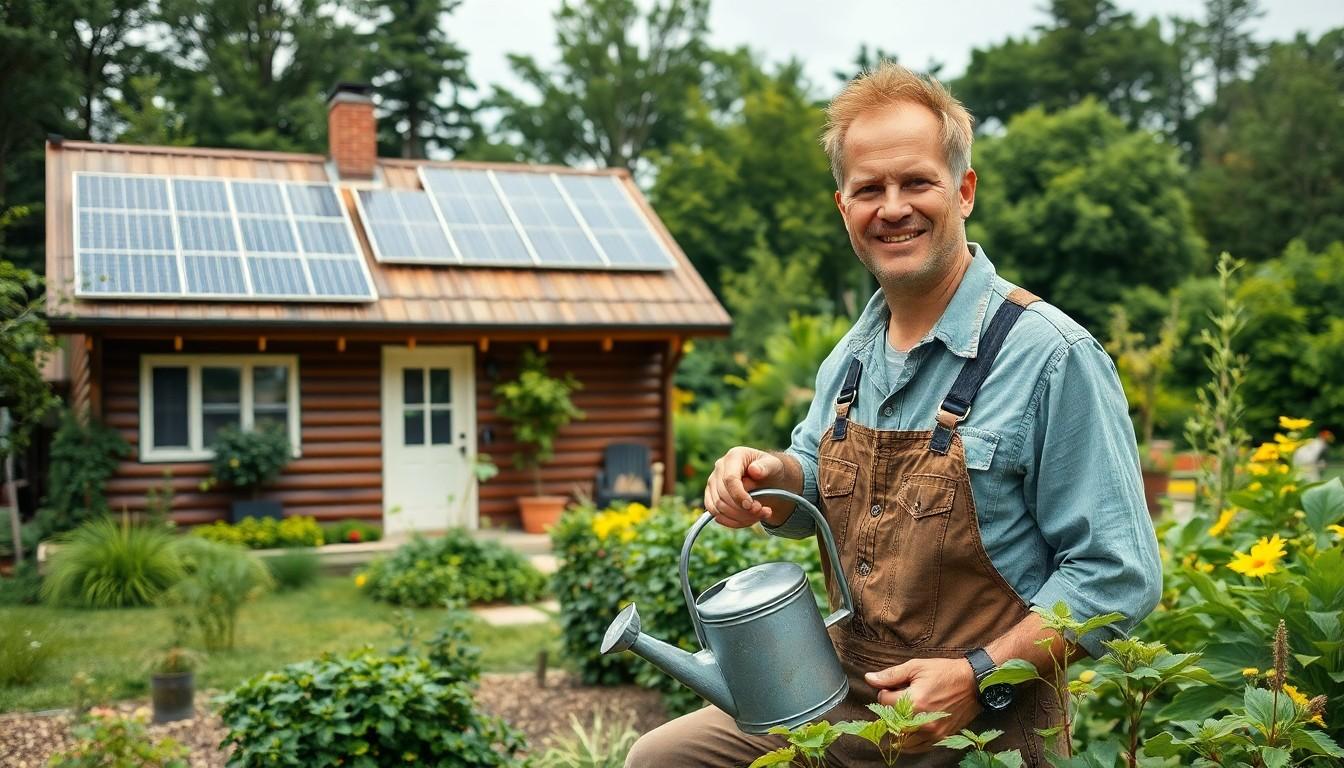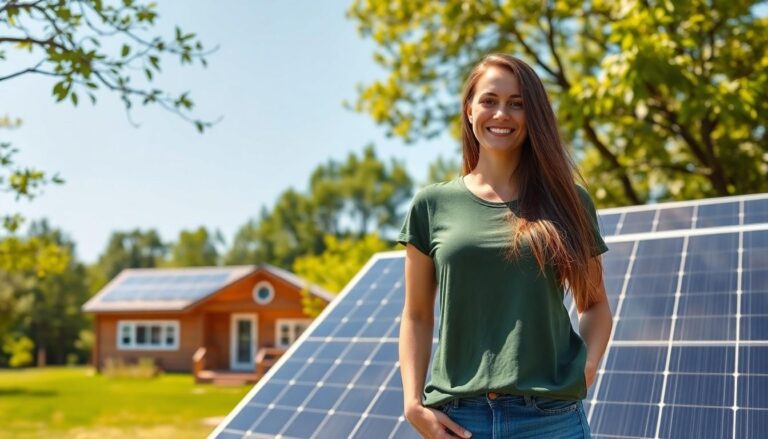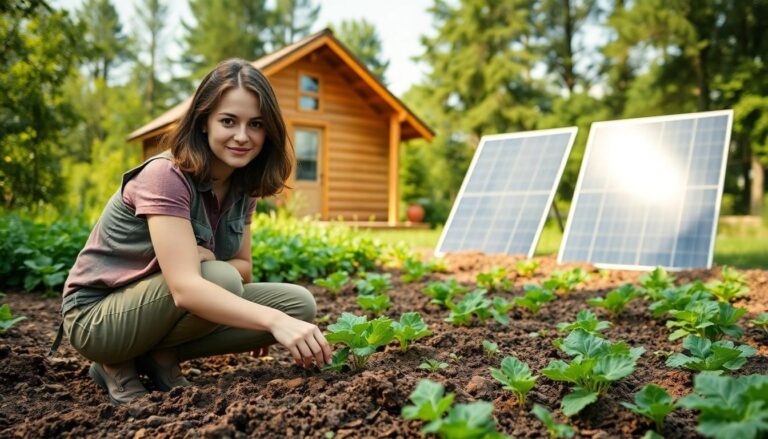Imagine waking up to the sound of birds chirping instead of alarm clocks blaring. Off-grid living offers that dream and more, allowing people to break free from the daily grind and embrace a simpler, more sustainable lifestyle. It’s like hitting the reset button on life, minus the pesky Wi-Fi interruptions.
Picture this: no more endless bills, no more noisy neighbors, and definitely no more crowded commutes. Instead, you get to enjoy fresh air, homegrown veggies, and the occasional squirrel who thinks he owns the place. Off-grid living isn’t just a trend; it’s a movement that’s gaining traction among those who crave independence and a connection to nature. So, if you’re ready to swap city lights for starlit nights, let’s dive into the exhilarating world of off-grid living and discover how to make it work for you.
Off-Grid Living
Off-grid living refers to a lifestyle where individuals or families live independently from public utilities. This way of life emphasizes self-sufficiency in resources like water, electricity, and food. Many people who pursue off-grid living aim to minimize their environmental impact while gaining a sense of freedom from societal norms.
Solar panels often serve as primary power sources, generating electricity for daily needs. Rainwater harvesting systems provide a sustainable water supply, reducing reliance on municipal services. Additionally, these setups commonly include composting toilets to handle waste in an environmentally responsible way.
Growing food becomes a key aspect of off-grid living. Vegetable gardens, fruit trees, and livestock create a self-sustaining ecosystem that provides fresh produce. Implementing permaculture principles enhances garden efficiency while reducing labor.
Communities of off-grid enthusiasts exist, offering support, shared experiences, and resources. Some people join these groups to learn survival skills, attend workshops, or trade goods. Each interaction fosters a sense of belonging among those committed to this sustainable lifestyle.
Considering the financial implications, many find off-grid living economically advantageous over time. Initial costs can be significant, primarily for solar systems or property. However, ongoing expenses decrease, freeing individuals from monthly utility bills.
Overall, off-grid living appeals to those desiring a simpler, more sustainable way of life. This choice reflects a dedication to independence, environmental stewardship, and personal fulfillment. The growing interest in off-grid living highlights its relevance in today’s society.
Benefits Of Off-Grid Living

Off-grid living offers numerous advantages, enhancing personal wellbeing and promoting sustainability.
Environmental Impact
Off-grid living significantly reduces carbon footprints. Individuals utilize renewable energy sources such as solar and wind power. These alternatives decrease reliance on fossil fuels, mitigating climate change effects. Additionally, water harvesting systems help manage water resources sustainably. Composting toilets minimize waste and promote soil health. Many practice organic gardening, fostering biodiversity and reducing reliance on chemical fertilizers. Embracing permaculture principles boosts ecological balance. Off-grid lifestyles also encourage minimalism, leading to less consumer waste. Each decision supports a more sustainable future, creating a positive ripple effect on local ecosystems.
Financial Savings
Financial savings represent a crucial benefit of off-grid living. Initial investments in solar panels and rainwater systems lead to long-term cost reductions. Without monthly utility bills, individuals enjoy greater financial freedom. Lower ongoing expenses contribute to reduced overall living costs. Expenses tied to traditional housing, such as heating and electricity, often decrease significantly. Maintenance costs tend to be less burdensome with self-sufficient systems. Some individuals even generate income by selling surplus produce or energy. By eliminating dependency on public utilities, off-grid living promotes financial independence and stability.
Challenges Of Off-Grid Living
Living off-grid presents unique challenges. Individuals often face obstacles that require thorough understanding and preparation.
Initial Setup Costs
Initial setup costs can be significant. Purchasing solar panels, batteries, and water collection systems can total thousands of dollars. Property acquisition, often remote, adds to expenses. While investments in sustainable infrastructure offer long-term savings, upfront costs present a barrier. Many aspiring off-grid dwellers must budget extensively to cover these expenses. They might seek grants or loans, facilitating the transition to a self-sufficient lifestyle.
Maintenance and Sustainability
Maintenance of off-grid systems demands ongoing attention. Solar panels require regular cleaning and inspection to maximize efficiency. Similarly, water systems must be monitored for functionality and contamination. Proper upkeep of gardens and livestock supports sustainable food sources. Sustainability hinges on continual learning and adaptability. Off-grid living requires individuals to stay informed about best practices and innovations. Community engagement often provides valuable resources and support, making maintenance more manageable.
Essential Components of Off-Grid Living
Off-grid living relies on several key components to ensure a self-sufficient and sustainable lifestyle. Understanding these essential elements helps individuals effectively navigate their off-grid journey.
Energy Sources
Solar panels serve as a primary energy source for off-grid homes. These systems convert sunlight into electricity, providing power for everyday needs. Wind turbines also play a vital role by harnessing wind energy, which supplements solar power. Battery storage is crucial for retaining excess energy generated during sunny or windy days. This technology ensures a consistent power supply, even during periods of low generation. Additionally, some opt for generators as backup options. Implementing a mix of these energy sources enhances reliability and reduces dependence on traditional power grids.
Water Supply
Rainwater harvesting systems provide a sustainable and efficient water source for off-grid living. These systems capture rainwater from rooftops, directing it into storage tanks for later use. Wells also offer an alternative water supply, particularly in areas with sufficient groundwater resources. Filtration systems ensure that collected water remains safe for drinking and household use. Managing water resources effectively contributes to the overall sustainability of an off-grid lifestyle. Regular maintenance of these systems ensures proper functionality, safeguarding the quality of this essential resource.




